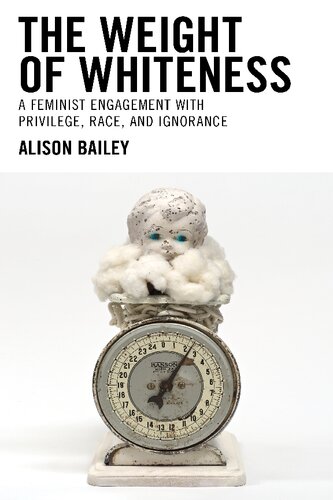

Most ebook files are in PDF format, so you can easily read them using various software such as Foxit Reader or directly on the Google Chrome browser.
Some ebook files are released by publishers in other formats such as .awz, .mobi, .epub, .fb2, etc. You may need to install specific software to read these formats on mobile/PC, such as Calibre.
Please read the tutorial at this link: https://ebookbell.com/faq
We offer FREE conversion to the popular formats you request; however, this may take some time. Therefore, right after payment, please email us, and we will try to provide the service as quickly as possible.
For some exceptional file formats or broken links (if any), please refrain from opening any disputes. Instead, email us first, and we will try to assist within a maximum of 6 hours.
EbookBell Team

4.4
42 reviews“Check your privilege” is not a request for a simple favor. It asks white people to consider the painful dimensions of what they have been socialized to ignore. Alison Bailey’sThe Weight of Whiteness: A Feminist Engagement with Privilege, Race, and Ignoranceexamines how whiteness misshapes our humanity, measuring the weight of whiteness in terms of its costs and losses to collective humanity. People of color feel the weight of whiteness daily. The resistant habits of whiteness and its attendant privileges, however, make it difficult for white people to feel the damage. White people are more comfortable thinking about white supremacy in terms of what privilege doesforthem, rather than feeling what it doestothem. The first half of the book focuses on theoverexposed side of white privilege, the side that works to make the invisible and intangible structures of power more visible and tangible. Bailey discusses the importance of understanding privileges intersectionally, the ignorance-preserving habits of “white talk,” and how privilege and ignorance circulate in educational settings. The second part invites white readers to explore theunderexposedside of white dominance, the weightless side that they would rather not feel. The final chapters are powerfully autobiographical. Bailey engages readers with a deeply personal account of what it means to hold space with the painful weight of whiteness in her own life. She also offers a moving account of medicinal genealogies, which helps to engage the weight she inherits from her settler colonial ancestors. The book illustrates how the gravitational pull of white ignorance and comfort are stronger than the clean pain required for collective liberation. The stakes are high: Failure to hold the weight of whiteness ensures that white people will continue to blow the weight of historical trauma through communities of color.